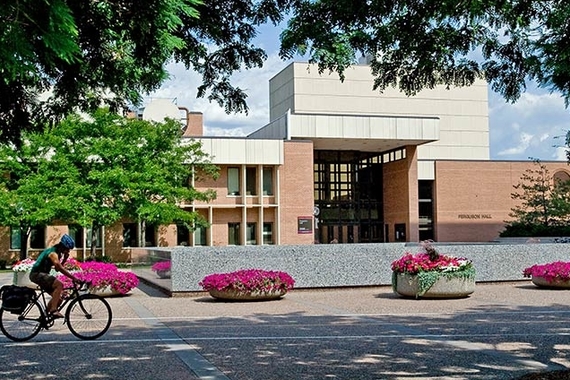Histories of Policing and Carcerality
As the scholarship on policing and carcerality continues to grow and generate a
multitude of questions, the need to do this work in community becomes ever more
apparent. As such, the History Department at the University of Minnesota has
recently invited applications to our graduate program for a thematic cohort
centered on the histories of policing and carcerality. We define this theme broadly
to include students with interests across geography and chronology, including all
regions of the globe and early modern and pre-modern antecedents to modern law
enforcement and the carceral state. Although we are no longer specifically recruiting
students for this thematic cohort, we will continue to support work that speaks to
the expanding historiography on ancient, medieval, and early modern forms of
crime, investigation, and punishment. We also support PhD research projects that
think about how the concept of carcerality worked in settler colonial societies,
colonial, and postcolonial societies and who are interested in exploring carcerality
in relation to gender, class, ability, race/ethnicity, religion, etc.
Among our agendas is to collectively think about how to push the vibrant
interdisciplinary field of carceral studies to be more transnational. We hope that
with these histories we can be better equipped to think about the present and
future. Another is to examine whether current case studies can propose solutions to
the problems of policing. Can we imagine a form of law enforcement outside the
histories of class conflict, enslavement, and imperialism? These questions lie at the
root of contemporary debates over policing.
Students in our department have the opportunity to work with a growing cluster of
faculty interested in varying aspects of policing and carcerality in the United States,
Mexico and Central America, Africa, and Europe. Among our core faculty: Susanna
Blumenthal offers law and graduate courses on Criminal Law, US Legal History, and
Abolition and the Carceral State; Anna Clark teaches the history of human rights and
researches carcerality more generally in institutions such as workhouses and
hospitals in the 19th century imperial context; Aaron Hall teaches courses on the
history of American slavery; William Jones offers a graduate seminar on Race and
Class in the U.S; Patrick McNamara teaches on the history of the Drug Wars in Latin
America and works closely with asylum seekers often held in detention; Michelle
Phelps offers a graduate course in Sociology on Race, Crime and Punishment; Joe
Soss teaches courses on the politics of public affairs; Yalile Suriel teaches courses on
the history of policing and surveillance as well as on student activism. Other history
faculty with related interests include Sarah Chambers in Latin American History,
Katharine Gerbner in Early American History, Kevin Murphy in Public History,
Helena Pohlandt-McCormick in African history, and Kathryn Reyerson in Medieval
Europe.
Doing this work within the community of the University of Minnesota (and from a
variety of conceptual and methodological approaches in an array of disciplines and
perspectives) is particularly fitting given the worldwide attention focused on
Minneapolis in the aftermath of George Floyd’s murder. Minneapolis is a place of
vibrant activism and is currently at the very center of conversations around the
topics of police reform and abolition. Much of this local organizing has been
accompanied by a dedication to recording and archiving the work in academic and
online archival spaces. Additionally, groups such as Minnesota Transform and
additional collaborations between Yalile Suriel and archivist Ellen Holt-Werle under
the initiative of ‘Universities and Power’ have served as spaces to think about the
implications of all this organizing for universities, their security apparatus, and
ultimately to examine the role that universities can play going forward.
We hope you will consider joining our department in this or in one of its many other
specializations. Potential applicants are encouraged to contact faculty in their
geographic or chronological fields or the Director of Graduate Studies in the History
Department, Professor Helena Pohlandt-McCormick.
Helena Pohlandt-McCormick, Director of Graduate Studies, and Yanhui Hou, Office
Coordinator


